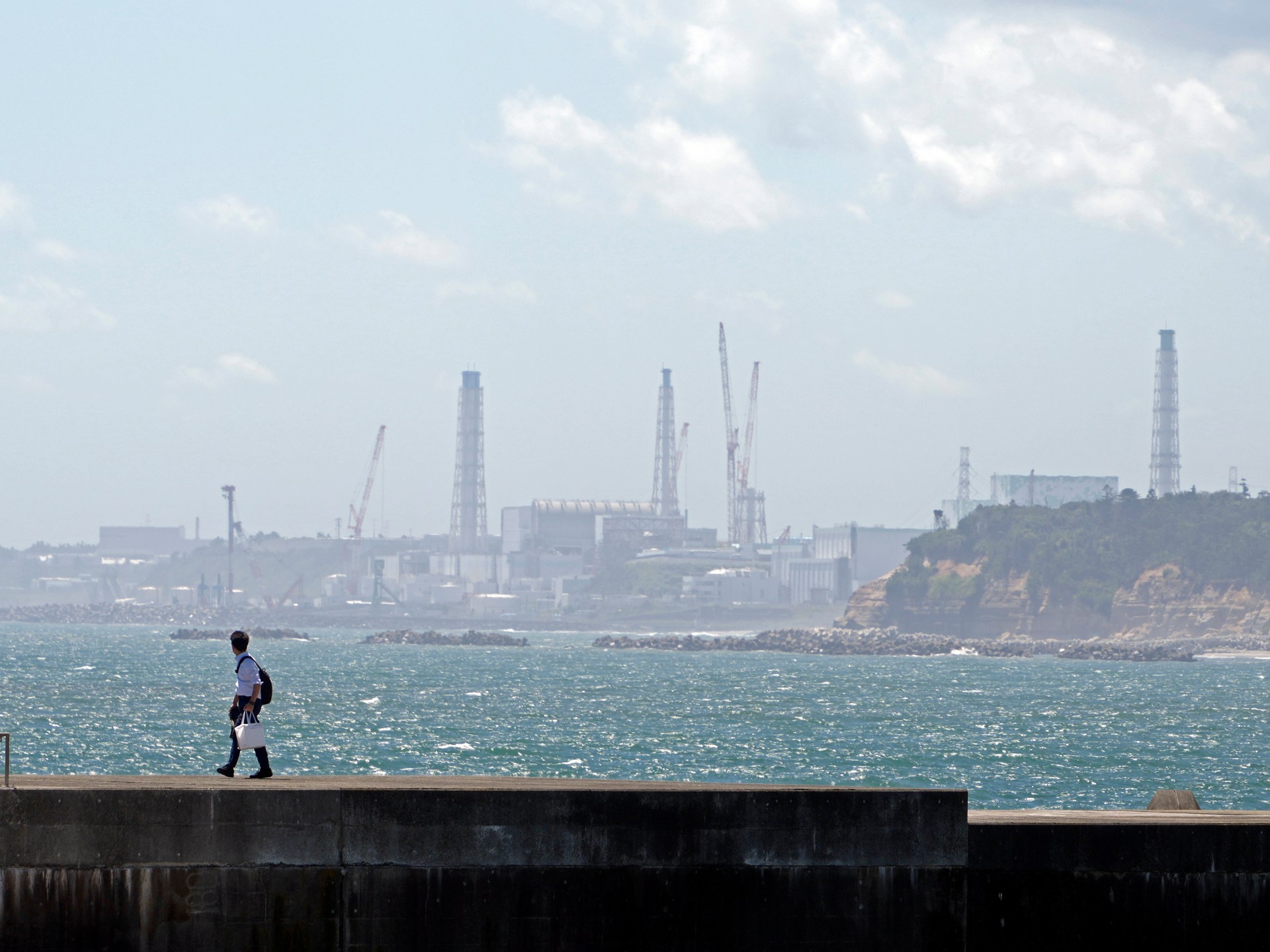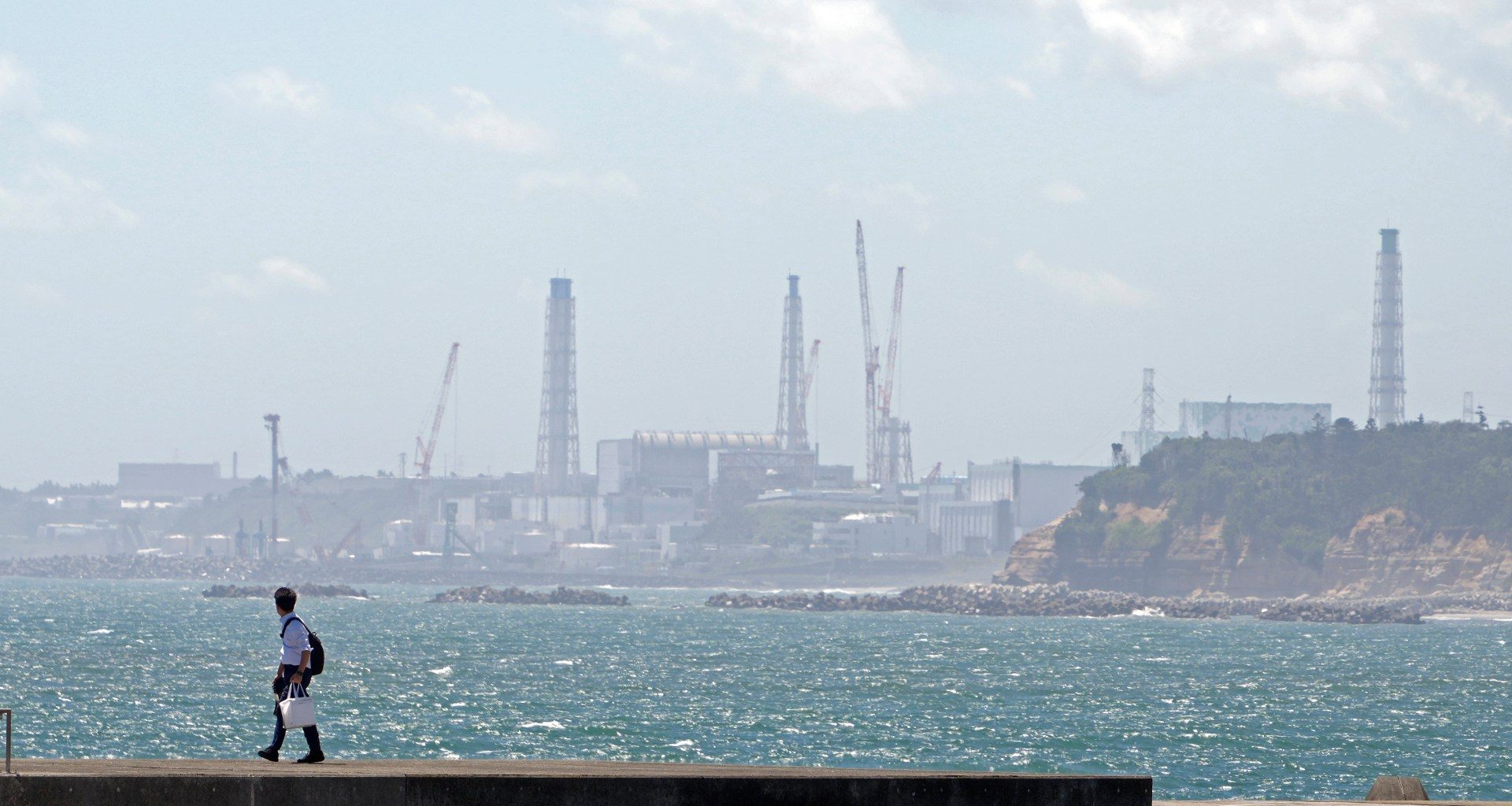
On March 11, 2011, a magnitude 9 earthquake and a subsequent 15-metre tsunami struck Japan, which triggered a nuclear disaster at TEPCO’s Fukushima Daiichi nuclear plant. Three of the six plant’s reactors were affected, resulting in meltdowns and the release of a significant amount of radioactive material into the environment.
Today, 13 years later, Japan is still experiencing the impacts of this disaster. Immediately after the earthquake struck, more than 160,000 people were evacuated. Of them, nearly 29,000 still remain displaced.
Disastrous health effects due to exposure to radioactivity are still a serious concern for many, and environmental impacts on land, water, agriculture, and fisheries are still visible. The cost of the damage, including victim compensation, has been astronomical; $7bn has been spent annually since 2011, and work continues.
Last year, Japan’s plan to start releasing more than a million tonnes of treated wastewater into the Pacific Ocean sparked anxiety and anger, including among community members who rely on fishing for their livelihoods, from Fukushima to Fiji.
Yet, Japan and the rest of the world appear not to have learned much from this devastating experience. On March 21, Belgium hosted the first Nuclear Energy Summit attended by high-level officials from across the globe, including Japanese Vice-Minister for Foreign Affairs Masahiro Komura. The event was meant to promote the development, expansion and funding of nuclear energy research and projects.
The summit came after more than 20 countries, including Japan, announced plans to triple nuclear energy capacity by 2050 at last year’s UN Climate Change Conference (COP28).
All of these developments go against growing evidence that nuclear energy is not an efficient and safe option for the energy transition away from fossil fuels.
Despite advancements in waste-storage technology, no foolproof method for handling nuclear waste has been devised and implemented yet. As nuclear power plants continue to create radioactive waste, the potential for leakage, accidents, and diversion to nuclear weapons still presents significant environmental, public health, and security risks.
Nuclear power is also the slowest low-carbon energy to deploy, is very costly and has the least impact in the short, medium and long term on decarbonising the energy mix. The latest Intergovernmental Panel on Climate Change (IPCC) report pointed out that nuclear energy’s potential and cost-effectiveness of emission reduction by 2030 was much smaller than that of solar and wind energy.
Large-scale energy technologies like nuclear power plants also require billions of dollars upfront, and take a decade to build due to stricter safety regulations. Even the deployment of small modular reactors (SMR) has a high price tag. Late last year, a flagship project by NuScale funded by the US government to the tune of hundreds of millions of dollars had to be abandoned due to rising costs.
In addition to that, according to a report released by Greenpeace in 2023, even in the most favourable scenario and with an equal investment amount, by 2050, the installation of a wind and solar power infrastructure would produce three times more cumulative electricity and emit four times less cumulative CO2 compared to a water nuclear reactor in the same period.
And the climate crisis is not just about CO2 emissions. It is about a whole range of environmental justice and democracy issues that need to be considered. And nuclear energy does not have a stellar record in this regard.
For instance, uranium mining – the initial step in nuclear energy production – has been linked to habitat destruction, soil and water contamination, and adverse health effects for communities near mining sites. The extraction and processing of uranium require vast amounts of energy, often derived from nonrenewable sources, further compromising the environmental credentials of nuclear power.
Nuclear energy also uses centralised technology, governance, and decision-making processes, concentrating the distribution of power in the hands of the few.
For an equitable energy transition, energy solutions need not only to be safe, but justly sourced and fairly implemented. While nuclear power plants require kilometres of pipelines, long-distance planning, and centralised management, the manufacturing and installation of solar panels and wind turbines is becoming more and more energy efficient and easier to deploy.
If implemented correctly, regulation and recycling programnes can address critical materials and end-of-life disposal concerns. Community-based solar and wind projects can create new jobs, stimulate local economies, and empower communities to take control of their energy future as opposed to contributing more money to the trillion-dollar fossil fuel industry.
Although the 2011 disaster in Fukushima may seem like a distant past, its effects today on the health of its environment, people and community are reminders that we must not be dangerously distracted with the so-called promises of nuclear energy.
We must not transition from one broken system to another.
Wealthy countries have an ethical historical responsibility to support global finance reform and provide ample funding for renewable energy in lower-income countries. To keep our world safe and fair, not only do we need to tax and phase out fossil fuels immediately, but it is essential that we power up with renewable energy, such as wind and solar, fast, widely, and equitably.
The views expressed in this article are the author’s own and do not necessarily reflect Al Jazeera’s editorial stance.
Read More: World News | Entertainment News | Celeb News
Aljazera








